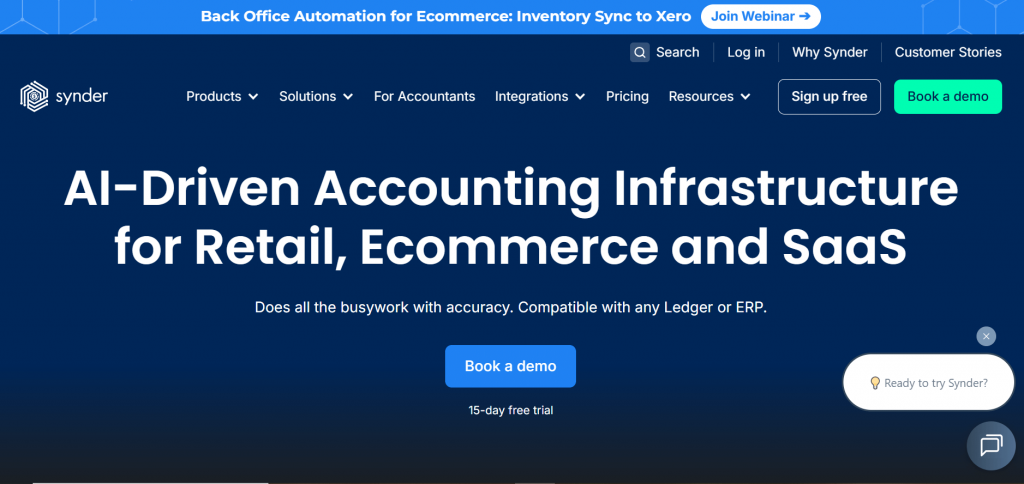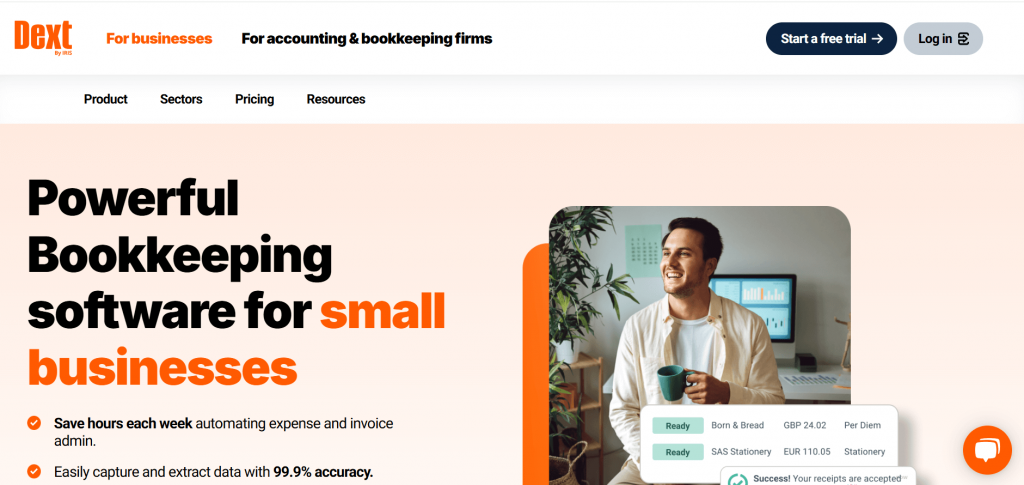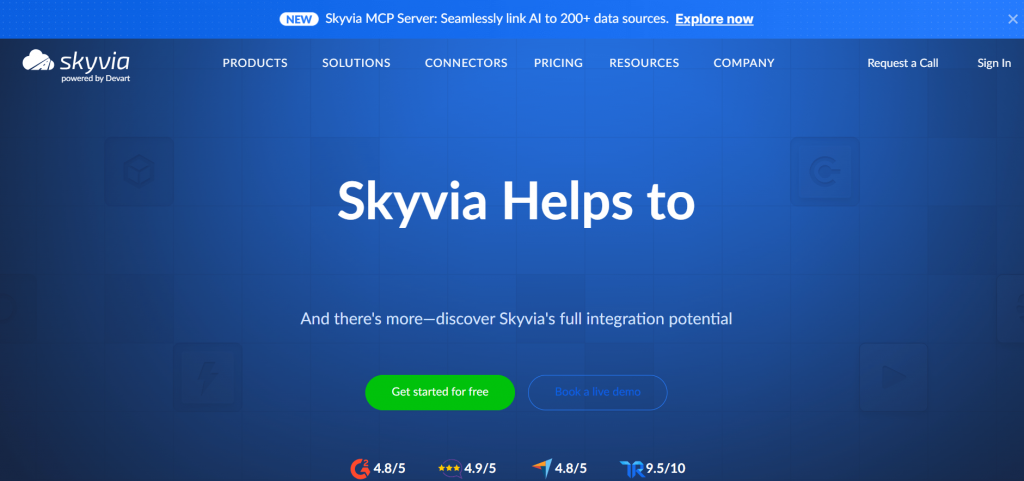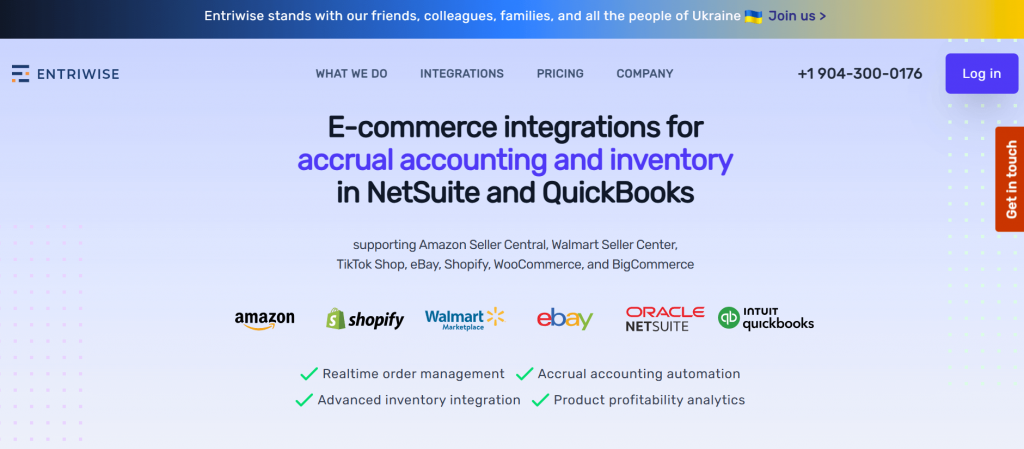Ecommerce businesses often grow faster than the systems built to support them. What starts as one store quickly turns into three, payouts land in different gateways, and suddenly, your books don’t add up the way they used to. This poor data costs businesses $12.9 million a year.
For many sellers, A2X is a great place to start as it handles marketplace settlements and basic reconciliations well. But as your business grows, things get complicated: more sales channels, multiple currencies, messy refunds. Suddenly, your “automated” data needs manual fixing. That’s when business owners start looking for something stronger to keep their books accurate.
Why merchants look for an A2X alternative
Before we look at the options, let’s talk about some of the common frustrations sellers run into with A2X.
- Complex setup & learning curve: Configuring the mappings, accounts, currencies, and payout reconciliations configured can be tricky and take quite a bit of time.
- Limited platform support: A2X doesn’t always integrate well with WooCommerce or other niche platforms.
- Slow or tiered support: Lower-tier users may end up waiting quite a bit for help.
- Scalability & pricing constraints: As volume or number of channels grows, costs may rise steeply.
- Lack of customization: Rigid workflows and limited mapping options make it hard for the tool to fit your business needs.
Given those, here are 5 competitors worth a look.
Top 5 alternatives to A2X
1. Synder

Synder is designed to bring order to the chaos of modern ecommerce.
Instead of working in silos or syncing one marketplace at a time, it unifies all your sales channels into one smooth financial ecosystem. Every transaction flows automatically into your accounting or ERP system. What you get is a single, accurate, and real-time financial picture without manual data entry or mismatched reports.
Core features
- Broad integrations: Connects with 30+ platforms and counting, like Shopify, WooCommerce, Amazon, Etsy, Stripe, PayPal, Square, eBay, Magento, TikTok, Walmart, Clover, and more.
- Deep accounting compatibility: Works seamlessly with QuickBooks, Xero, Sage Intacct, and NetSuite, ensuring transactions land exactly where they should.
- Accurate tax posting: Captures and assigns sales tax, VAT, and GST to the proper codes, so your books stay compliant across regions.
- Customizable mapping: Gives you full control with flexible mapping rules that define how each transaction syncs into your chart of accounts.
- Actionable insights: Delivers powerful analytics and reports, such as profitability by channel, SKU, or time period, so you can see what drives your growth.
- Enterprise-grade security: Built with bank-level encryption and fully SOC 2 Type II compliant, Synder ensures your financial data is protected under the highest security and privacy standards.
Smarter automation with AI
Synder doesn’t just automate, it thinks ahead. Its AI-powered features detect duplicates, fix misclassifications, and can even roll back errors automatically. Advanced anomaly detection spots irregularities before they snowball into costly problems, while smart data cleaning keeps your books spotless and ready for confident decision-making.
Pricing
| Plan | Price (billed annually) | Best for | Included features |
| Basic | $52/month | Small businesses processing up to 500 transactions per month | Core automation tools for sales, fees, and tax sync. Integrations with top platforms and accounting systems. Reliable reconciliation and reporting basics. |
| Essential | from $92/month | Growing businesses handling 500–3,000 transactions monthly | All Basic features plus advanced mapping, multi-currency support, customizable sync settings, and AI-powered duplicate detection for cleaner books. |
| Pro | from $220/month | Multi-channel sellers managing 3,000–50,000 transactions monthly | Full automation suite with deep analytics, expanded platform connections, and smart data cleaning. Built for high-volume ecommerce and scaling operations. |
| Premium | Custom pricing | Enterprises or accounting firms with complex, high-volume workflows | Includes all Pro features plus tailored setup, priority support, and custom automation rules. Ideal for multi-entity accounting. |
Why Synder stands out
Synder is a system built for control, accuracy, and scale. Where most solutions stop at syncing transactions, Synder goes further, turning raw data into structured financial intelligence that drives better decisions.
It simplifies edge cases other tools ignore, like split payments, partial refunds, or multi-currency conversions, keeping every record traceable and audit-ready. Its smart automation adapts to your workflow, catches errors early, and maintains accuracy as transaction volume grows.
For finance teams, that means closing the books faster, reconciling confidently, and running reports that reflect real business performance, not estimates. For business owners, it means knowing exactly what’s earned, what’s pending, and what’s next.
With Synder, you’re building financial clarity that scales with your business.
See how easy automated accounting can be! Start Synder’s 15-day free trial or book a personalized demo.
2. Dext

Think of Dext as the digital assistant for your receipts and expenses. Instead of drowning in invoices and bank statements, you snap a photo or connect an account, and Dext does categorizing, syncing, and pushing it all neatly into QuickBooks or Xero.
Core features
- Captures receipts, invoices, and bank statements, and digitizes them.
- Syncs seamlessly with accounting systems like QuickBooks, Xero, and others.
- Tracks expenses in real time, with basic categorization and rules.
- Employs intelligent document processing.
- Stores documents, making them organized and easy to access over time
Pricing
| Plan / Add-on | Details |
| Plan for businesses | Starts at $25.21/month (billed annually) – includes 5 users and 250 documents per month. |
| Commerce Lite (add-on) | From $7.50/month – designed for syncing ecommerce sales data. |
| Vault (add-on) | Free for up to 100MB of storage. |
| Payments (add-on) | Coming soon. |
What to consider when choosing Dext
For ecommerce sellers, Dext shines if you’re tired of shoeboxes of receipts or endless spreadsheet rows. Just note that it focuses more on expense and document automation than on multi-channel sales data, so you may still need another tool to cover the full picture.
3. Taxomate

Taxomate is designed with marketplace sellers in mind, especially those starting out on Amazon. It automates settlement imports and basic bookkeeping so you don’t have to manually piece together every payout. The pricing is accessible, which makes it appealing to smaller businesses.
Core features
- Automates bookkeeping workflows that handle sales data, fees, and tax summaries.
- Integrates with accounting software (QuickBooks, Xero, Wave) across multiple sales channels.
- Supports connections to major marketplaces, including Amazon, Shopify, eBay, Walmart, and Etsy.
- Syncs orders and payouts into summarized invoices matched to the correct accounting accounts.
Pricing
| Plan | Details |
| Starter | $12/month (billed annually) – import up to 500 orders per month. |
| 1K Plan | $20/month (billed annually) – import up to 1,000 orders per month. |
| 5K Plan | $37/month (billed annually) – import up to 5,000 orders per month. |
| 10K Plan | $66/month (billed annually) – import up to 10,000 orders per month. |
| 20K Plan | $116/month (billed annually) – import up to 20,000 orders per month. |
What to consider when choosing Taxomate
Taxomate works well for small Amazon or marketplace sellers who want an affordable way to automate settlement imports and basic bookkeeping. If your business is simple and focused on one or two sales channels, it can be a practical fit. As soon as you expand into multi-channel operations or need more control over reconciliation, you’ll likely need a more advanced tool.
4. Skyvia

Skyvia is a cloud-based integration platform that helps connect different apps and bring data into one place. For ecommerce sellers, it offers connectors that link Shopify, WooCommerce, and QuickBooks, allowing you to automate parts of your accounting process. For instance, you can automatically generate QuickBooks invoices from Shopify orders or create receipts for completed sales.
Core features
- Integrates with a range of apps, databases, clouds, and services through a connector library.
- Automates daily and on-demand backups to ensure data security and recovery.
- Orchestrates workflows with triggers, actions, and mapping logic to manage data flows without manual coding.
- Syncs data in real time or incrementally using change data capture (CDC) to keep information up to date.
- Supports both import/export and full data pipelines, including ETL and Reverse ETL.
Pricing
| Plan | Details |
| Free | $0/month – 10,000 records/month, 2 scheduled integrations, daily scheduling. |
| Basic | $79/month – 5 scheduled integrations, daily scheduling, simple mapping. |
| Standard | $159/month – 50 scheduled integrations, hourly scheduling, advanced mapping. |
| Professional | $399/month – unlimited scheduled integrations, minute-by-minute scheduling, advanced mapping. |
| Enterprise | Custom pricing – all features, advanced security, and tailored support. |
What to consider when choosing Skyvia
Skyvia is a good fit if you want flexibility and the ability to connect multiple apps beyond just your ecommerce platforms. However, it’s managed separately from Shopify, so you’ll be working across three systems: your store, your accounting software, and the connector, which can add complexity for busy merchants. If you’re comfortable managing integrations across platforms and want broader connectivity, Skyvia can be a helpful option.
5. Entriwise

Entriwise focuses almost entirely on Amazon, making it a good fit for sellers who want detailed control over their marketplace data. It can import everything from orders and fees to reimbursements and refunds, and even lets you choose how often that data flows into your books.
Core features
- Imports Amazon orders, fees, reimbursements, and refunds into QuickBooks or NetSuite.
- Offers flexible import schedules: hourly, daily, or by statement.
- Supports automatic reconciliation logic, including duplicate detection and adjustments.
- Handles inventory integration: syncing stock levels, mapping SKUs (including many-to-one, bundles, assemblies).
- Provides profitability analytics, letting you see which products or channels drive the most margin.
- Works with multiple ecommerce channels (Amazon, Shopify, Walmart, eBay etc.) in a single integration setup.
Pricing
What to consider when choosing Entriwise
For Amazon-only businesses, Entriwise can feel tailored to your needs, offering detailed imports of orders, fees, reimbursements, and refunds, along with flexible sync schedules. But if you sell across multiple platforms, its narrow focus means it won’t give you the full financial picture you need to manage a multi-channel business.
Bottom line
The further an ecommerce business scales, the less tolerance there is for unreliable financial data. A2X can cover the basics, but when payouts span multiple gateways, currencies shift daily, and refunds pile up, “basic” isn’t enough.
Among the alternatives, Synder delivers the breadth to unify every channel and the depth to reconcile even the messiest flows without adding manual work back into the process. For merchants serious about growth, it’s the platform that keeps the numbers trustworthy and the books ready for scale.
FAQ
What is the best A2X alternative?
Synder is the best A2X alternative for growing ecommerce businesses, offering automated transaction syncing, multi-platform support, and smart data mapping to keep financial records consistent and organized.
What makes Synder a better choice than A2X?
Synder connects over 30 ecommerce, payment, accounting and ERP platforms, automates data flow without manual exports, and ensures accurate, customizable transaction categorization for a complete financial picture.
What is the best software for accounting?
The best accounting software really depends on where your business is and what you need. QuickBooks Online is a go-to for small and midsize teams that want something reliable and easy to manage. Xero is great if you care about collaboration and a clean, modern interface, while Sage Intacct and NetSuite are designed for larger businesses with more complex finances.






